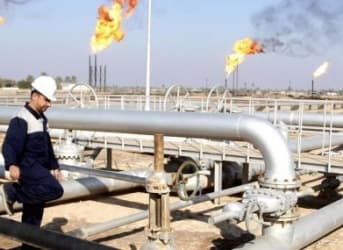The International Monetary Fund (IMF) has projected a whopping $500 billion loss in revenue for the Gulf nations in 2016, which is 30 percent more than the $390 billion lost in 2015. The massive shortfall has crippled the gulf economies, which are facing record budget deficits and seeking external funding to overcome it.
Many experts believe that $100 per barrel oil prices are history, and we might not revisit those prices for more than a decade. It implies that the recent crisis will not end as quickly as the downturn in 2007-2009. The oil-dependent nations will have to figure out how to survive on low oil prices for a long time.
“2016 is year number two in a multi-year adjustment process to reach balanced budgets,” said Masood Ahmed, director of the IMF’s Middle East and Central Asia Department. Likewise, The Wall Street Journal reports that “Probably another four to five years of action will be needed both on spending and on revenues before reaching a comfortable fiscal situation for many countries.” Related: China Stockpiling Oil At Highest Rate In Over A Decade
The oil-dependent economies in the gulf enjoyed the benefits of high oil prices for more than a decade. Easy money from oil stunted the growth of the other sectors as they were neglected, because ample money flowed into the coffers from oil sales.
“We have developed an oil addiction in the kingdom of Saudi Arabia, among everyone,” Prince Mohammed bin Salman, second in command to the throne, said. “That is dangerous, and that is what has hampered the development of many different sectors in recent years.”
The plunge in oil prices has forced the gulf nations to cut subsidies and introduce tough reforms to initiate the transition away from oil. The efforts haven’t gone unnoticed, as the IMF has hailed the major steps initiated by the gulf nations to survive the crisis.
"I do see in a number of countries action to address the budget deficit. That gives us encouragement and comfort,” said Mr. Masood in an interview. Related: Saudi Arabia Releases Ambitious Plan To Diversify Economy
Though the shift from oil dependence will not be a quick fix, the gulf nations will have to act quickly, because the IMF believes that the gulf region will have approximately 10 million youth looking for jobs by 2020. Without reforms, it is expected that around 3 million of them will be jobless, bringing back memories of the Arab Spring.
The Gulf nations are desperate enough to seek foreign loans. Qatar completed a $5.5-billion loan borrowing in January, and Oman obtained a $1-billion loan. These loans were priced at 110 and 120 basis points above the London interbank offered rate (Libor).
Similarly, Saudi Arabia is finalising a $10-billion loan at 120 basis points above Libor. "The deal is very successful, with very competitive pricing," said Elyas Algaseer, deputy regional general manager at Bank of Tokyo-Mitsubishi. "There was immense market appetite." Related: Oil Prices Fall On Unexpected EIA Barrel Build
It brings a big sigh of relief to the banks in Saudi Arabia, which were straining to lend to the government to fund the deficit. The three-month Saudi Interbank Offered Rate, rose to 2.004 percent, crossing 2 percent for the first time since 2009.
The recently announced “Saudi Vision 2030” has laid out plans for the new Saudi economy--an economy which, in theory, would be less dependent on oil. Though the plans are short on details and experts doubt that the transformation will be as easy and quick as the Saudi’s expects, there is no doubt that it is the first step in the right direction.
ADVERTISEMENT
By Rakesh Upadhyay for Oilprice.com
More Top Reads From Oilprice.com:
- Can Oil Continue To Rally Like This?
- First “Illegal” Shipment Of Oil Leaves Eastern Libya
- Has the Oil Price Rally Gone Too Far?

















